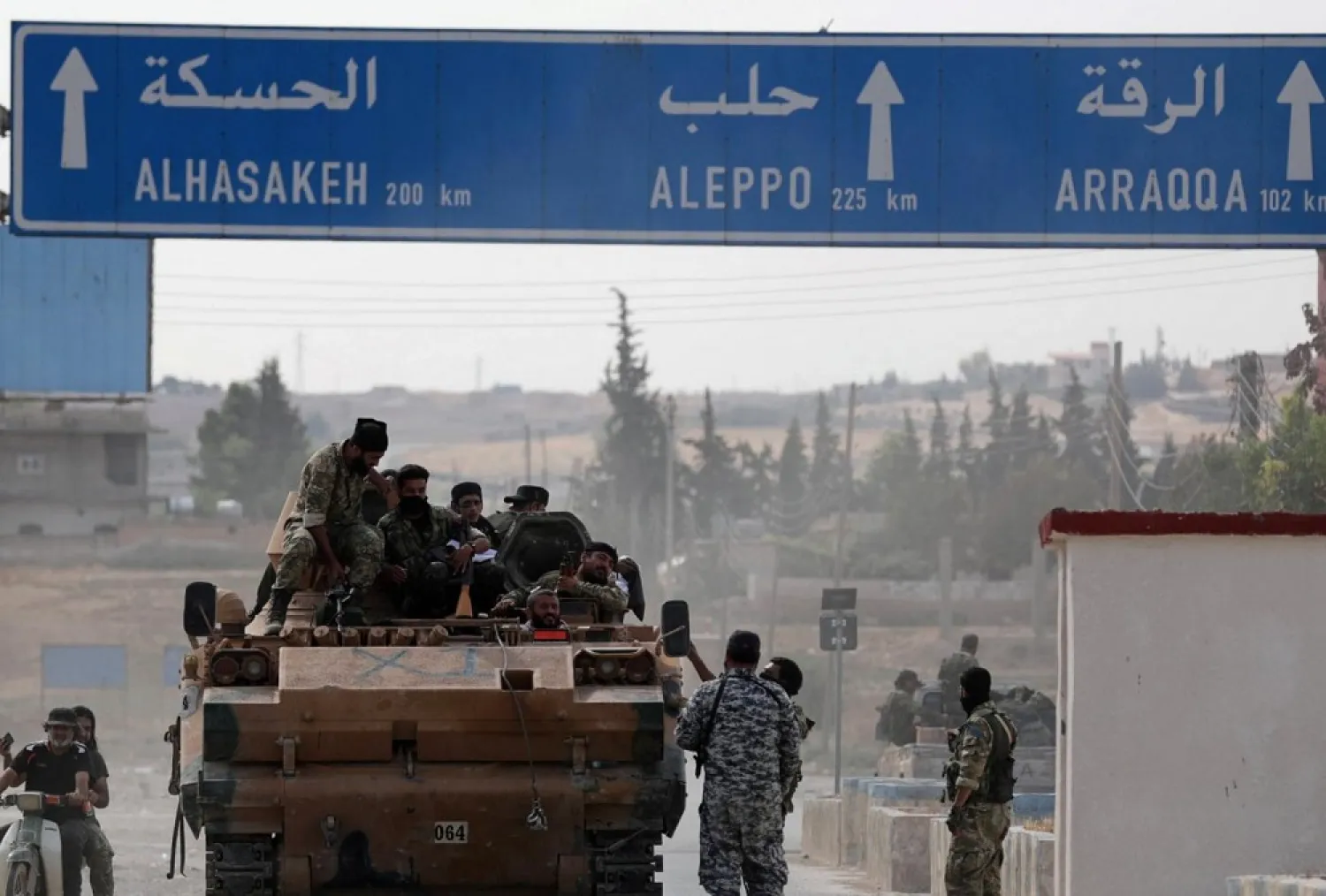Russia and Turkey deployed joint patrols on Monday in villages in the countryside of Malikiya near the Syrian-Turkish border east the city of Hasakeh.
This was the second joint patrol within a week. The first was deployed on July to the countryside of Ain Al-Arab city (Kobani).
Meanwhile, Turkey’s Defense Ministry said in a statement Monday that its security forces “neutralized” at least two People’s Protection Units (YPG) and Kurdistan Workers' Party (PKK) “terrorists” in northern Syria, near the country's southern border.
In a related development, the Syrian Observatory for Human Rights said Monday that Turkish forces and their proxy factions launched rockets on Al-Yashily and Arab Hasan villages west of Manbij city in eastern Aleppo.
Meanwhile, Turkish heavy artillery pounded the villages of Nuwayhat and Khadrawi in rural Hasakeh where regime troops and Syrian Democratic Forces are deployed.
From inside the Turkish territory, the army also shelled Hushan village in Ain Issa and the Saqr rest stop, causing material damage and burning down a petrol station, the Observatory reported.
It said the Turkish shelling cover conflict zones from Ain Issa countryside to the western countryside of Tal Abyad in Raqqa province.
Moreover, Turkish forces and their proxies shelled the villages of Tal al-Debs, Khirbet Baqar, Qazaali, Kur Hasan and Abu Hayya in the western countryside of Tal Abyad.
The Turkish army had launched Operation Peace Spring on Oct. 9, 2019, to eliminate Kurdish forces from northern Syria in areas east of the Euphrates River.
Later that month, the military paused its operation following an agreement reached between Ankara and Washington that guarantees the withdrawal of YPG members from the area.









